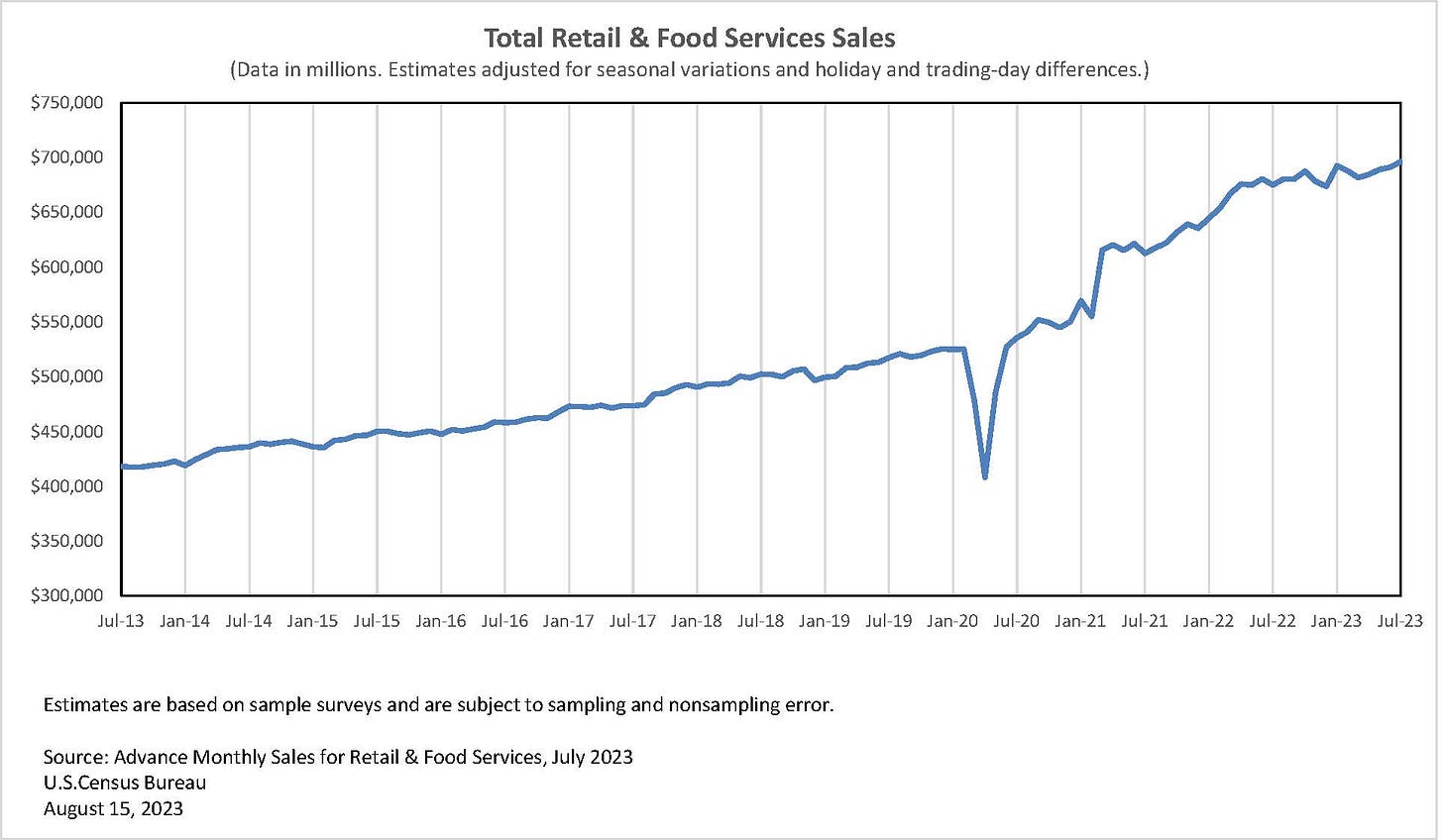Is good economic news really all that surprising? 📰
Let's talk about news sentiment and why I created TKer 📈

People continue to be blindsided by the resilience in personal consumption growth.
According to Census Bureau data, retail sales in July increased by 0.7% to $696.4 billion. As many news headlines show, this pace exceeded many economists’ forecasts. (See here, here, here, here, here, and here.)
“The media was flooded with stories …
Keep reading with a 7-day free trial
Subscribe to 📈 TKer by Sam Ro to keep reading this post and get 7 days of free access to the full post archives.



